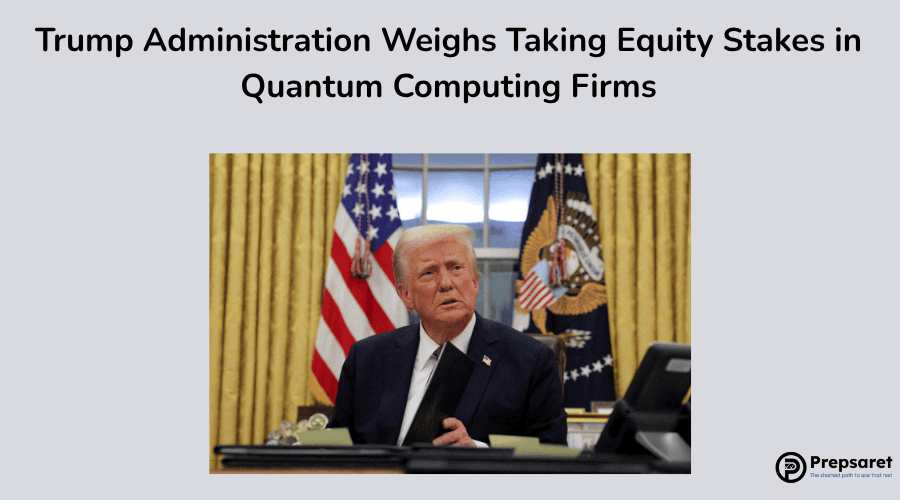The administration of U.S. President Donald Trump is reportedly exploring the possibility of acquiring ownership stakes in several quantum computing companies in exchange for federal investment, according to a Wednesday report by The Wall Street Journal, which cited individuals familiar with the talks.
The companies engaged in these discussions include IonQ, Rigetti Computing, and D-Wave Quantum.
The proposal under review would see Washington provide each participating firm with at least $10 million in federal funds in return for equity positions, the Journal said. Additional firms, such as Quantum Computing and Atom Computing, are said to be considering similar arrangements.
Reuters noted that it could not independently confirm the report. A spokesperson from the U.S. Commerce Department stated in an emailed response that “the department is not currently negotiating with any of the companies.”
Related story: Apple Unveils M5-Powered Devices, Elevating Performance and AI Capabilities
A Growing Pattern of Federal Investment in Tech and Industry
This move follows earlier actions by the Trump administration to deepen government involvement in private enterprises.
Earlier this year, Trump announced that the U.S. would acquire a 10% ownership stake in Intel, effectively converting federal grants into an equity position—a move described as another bold step by the White House to influence corporate America.
In addition, the administration has previously struck deals enabling the Pentagon to become the majority shareholder in MP Materials, a smaller mining company working to expand the production of rare earth magnets.
The U.S. government also secured a “golden share,” granting it veto authority, as part of an arrangement allowing Japan’s Nippon Steel to proceed with certain U.S. operations.
IonQ declined to comment on the report, while the White House, Rigetti Computing, D-Wave Quantum, Atom Computing, and Quantum Computing did not immediately respond to requests for comment from Reuters.
The Wall Street Journal added that U.S. Deputy Commerce Secretary Paul Dabbar—a former quantum-computing executive and Energy Department official—is spearheading these funding talks with private companies in the sector.
Meanwhile, the industry continues to see rapid advancements. In February, Microsoft introduced a new quantum chip, saying the breakthrough demonstrated that quantum computing is “years, not decades” away.
The announcement aligns with predictions from Google and IBM, both of which have indicated that a major transformation in computing technology may arrive much sooner than once expected.
Read next: OpenAI Launches ChatGPT Atlas, Taking Aim at Google Chrome’s Market Lead

